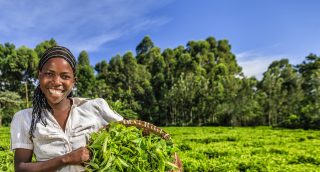The Small Scale Women Farmers Organization of Nigeria (SWOFON), and the Center for Social Justice (CSJ) have kicked against the downward review of the agriculture budget, as proposed by the Federal Executive Council (FEC) to the National Assembly.
The groups ascertained the reason for the proposed slash in the budget on agriculture was because of the COVID-19 pandemic, however, if given appropriate allocation, the sector could serve as a solution to the country’s current economic downturn.
During a media briefing, the National President, SWOFON, Mary Ishaya, recalled that Nigeria’s Agriculture Policy 2016-2020 provides for increased budget investment and political support for gender mainstreaming, and affirmative action in agriculture in the period 2018-2020.
Thus, Nigeria is committed to dedicating not less than 10 percent of the budget to agriculture. However, between 2010 and 2020, Nigeria under-invested in agriculture and committed an average of 1.57 percent of the overall budget to the sector, while actual capital releases averaged 59.72 percent.
Expressing SWOFON’s concerns, Ishaya said: “Our plea is for an increase in the allocation to agriculture to at least five percent of the overall budget, which is 50 percent of the Maputo commitment. This would amount to not less than N201.1billion, and if it’s not possible, then the original proposals in the 2020 budget for Agriculture must be protected.”
Meanwhile, Lead Director, CSJ, Eze Onyekpere, said allocations to agriculture, education and health should not be reduced, rather, savings from reprogrammed funds should be dedicated to enhancing their allocations.
Onyekpere states that the budget should “promote a commitment to equality of results for the male and female gender. Also, clear mandates supported by funds should be given to the research institutes under the Ministry of Agriculture.”
Selection of research subjects should be demand-driven on the request of farmers. Institutes should be mandated to find off-takers and farmers to use the findings of already concluded research.
Subsequently, SWOFON Coordinator, Chinasa Asonye, explained how difficult it is for women farmers, especially those in the rural areas to access the interventions from the Central Bank of Nigeria (CBN).
“I have spoken to my women across the nation and none of them has accessed these CBN interventions. They are just giving the money to the big scale farmers.”
“If they want the smallholder farmers to access these agriculture loans, they should remove the bottlenecks policies and rigorous processes which makes it hard for small-holder farmers to access these loans,” she said.
Asonye called on the government to liaise with the ministry of agriculture in disbursing the intervention funds in order to get access to the small-scale farmers that were initially budgeted for.








